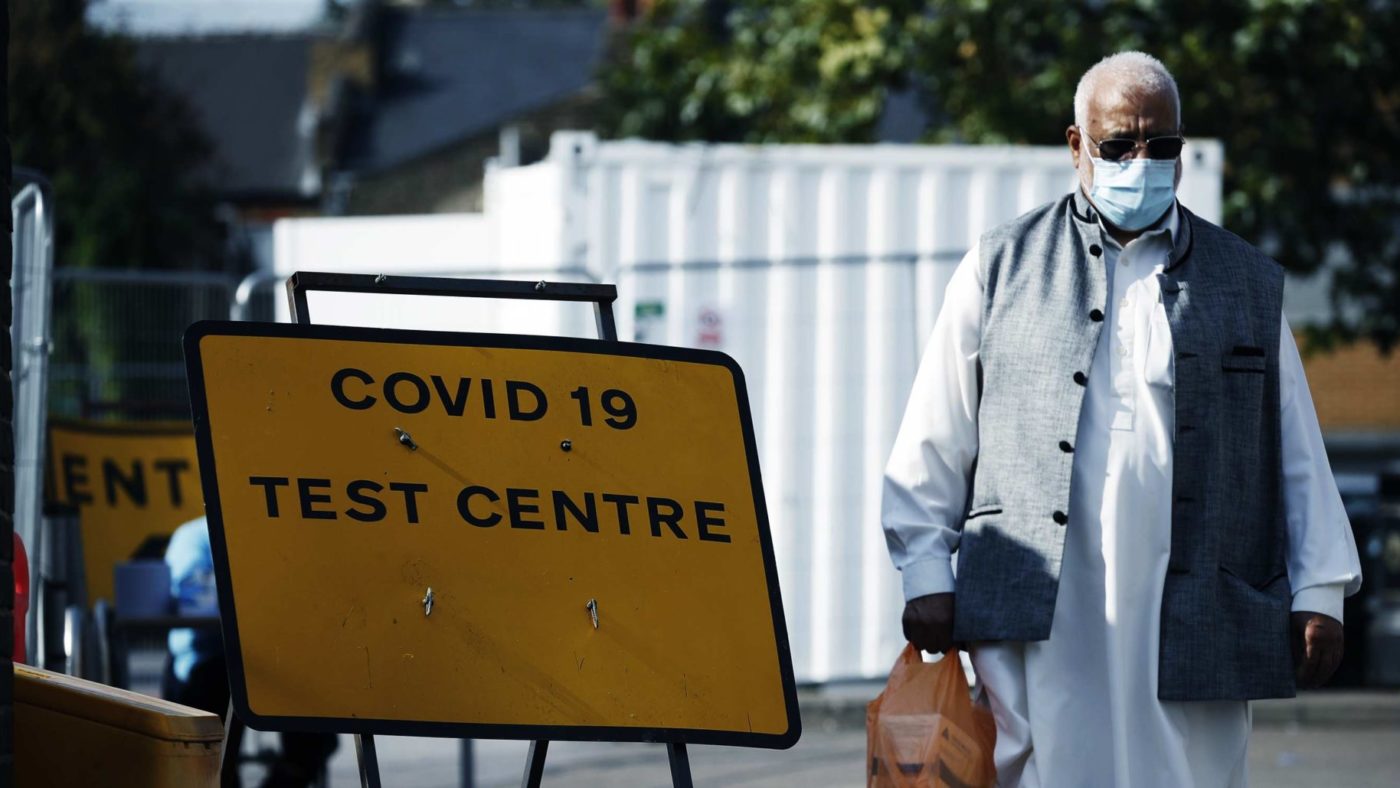It’s as though the last six months had never happened. Piers Morgan is tweeting furiously about a ‘surge’ in hospitalisations, while senior politicians are again mulling lockdowns and even curfews to contain the virus. The front page of the Mail on Sunday suggests fines as large as £10,000 for anyone breaking self-isolation.
This is simultaneously understandable and quite bizarre. Understandable because from the beginning of the outbreak we have been primed to fear a ‘second wave’ of cases, which some warned would be more deadly than the first. Bizarre because, looking at the Government’s own coronavirus dashboard, what is happening now is nowhere near what befell a startled, scrambling and largely unprepared nation back in March.
That’s not to say the worry is not genuine. Members of the Government’s SAGE group have warned throughout that winter could see a resurgence in cases as schools re-open. Combine that with a testing system that still seems unable to provide people with timely, convenient tests and you can see why panic is setting in.
But while we should certainly be alert to the rise in cases – whether you want to call it a ‘second wave’ or not – it’s worth noting that at the moment the rate of increase is not yet near what it was in spring (as this chart from Sky’s Ed Conway makes clear). Equally encouragingly, ONS survey data suggests that infections are higher among the younger cohorts who are least likely to develop serious complications. And while much is made of the UK showing the same pattern as countries like Spain, analysis of the data there suggests not a ‘wave’ but a flattening of cases and deaths.
It’s not just the case count though, but how prepared we are to deal with it. The problems with test-and-trace are well documented, not least on these pages. But compared to the dribble of tests that were available back in March, even this misfiring system represents a sea change.
And though in many ways the virus remains frustratingly enigmatic, treatment has improved considerably and the mortality of the virus is now lower than earlier in the year. This thread from ICU doctor Rupert Pearse is well worth a read on the many ways the NHS is now better prepared for Covid patients.
Of course, it is still a thoroughly nasty disease, and none of the above is a clarion call for inaction or complacency. But the question facing policymakers is not whether or not Covid is dangerous, but whether its threat merits blasting another crater in the British economy.
As well as the numerous impositions on our civil liberties, one of the most pernicious effects of this year has been normalising the idea that you can switch off swaths of activity – both commercial and social – with little compunction. Where Budgets are pored over in great detail to find out who will gain and lose, both politicians and public suddenly seem unnervingly comfortable with the idea that we can just shut things down. The Overton Window has become a greenhouse, and we’re all trapped inside.
This is not a party political point, since politicians of all stripes have adopted a similar stance. The SNP have been every bit as over-vigilant as the Conservatives, and it’s Labour mayors in Liverpool and London who are now beating the drum for more stringent measures. Equally concerning is that, for all that we bang on about our cherished liberties, the overwhelming majority of the public say they would support bringing in a curfew from 10pm to 5am, a move that would be stunningly illiberal and impractical, even by the standards of 2020.
Much has been written about the effectiveness of different slogans. ‘Stay At Home, Protect the NHS, Save Lives’ was the big hit, while ‘Stay alert, control the virus, save lives’ attracted derision. We’re now on the third of our tripartite calls to arms, the pleasingly pithy ‘hands, face, space’.
Faced with an eruption of the ‘Something Must Be Done’ tendency, perhaps the slogan we need now more is a twist on the achingly twee one that adorns a thousand t-shirts and posters: keep safe and carry on.
Click here to subscribe to our daily briefing – the best pieces from CapX and across the web.
CapX depends on the generosity of its readers. If you value what we do, please consider making a donation.


